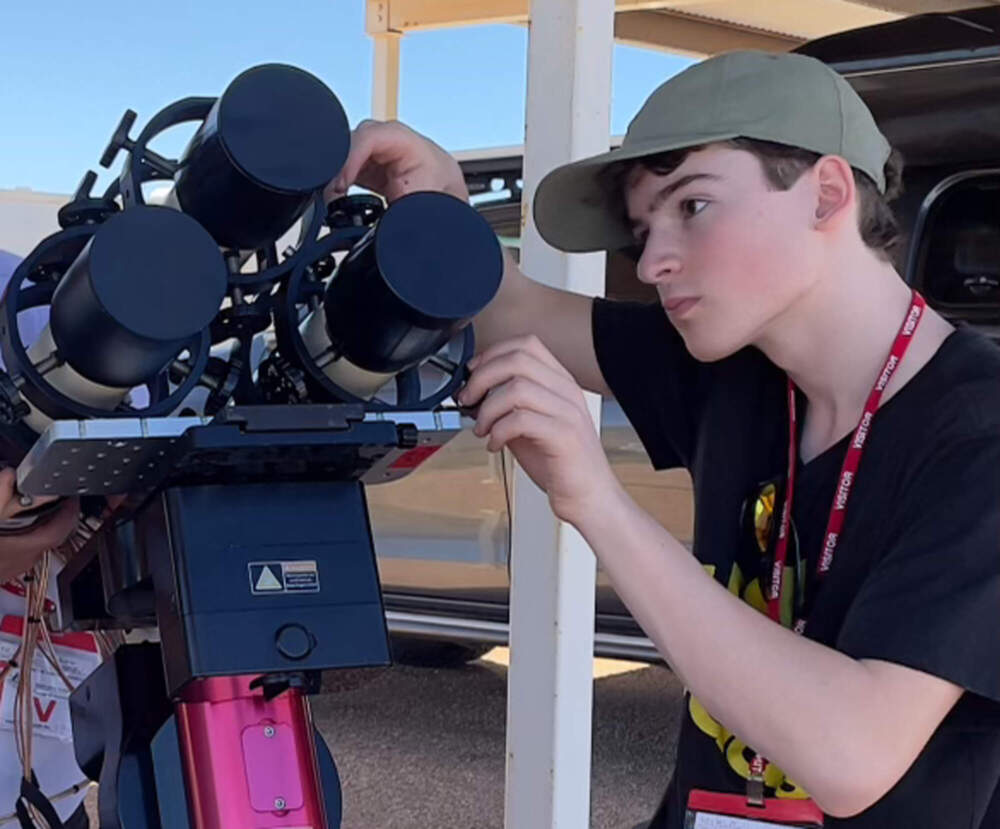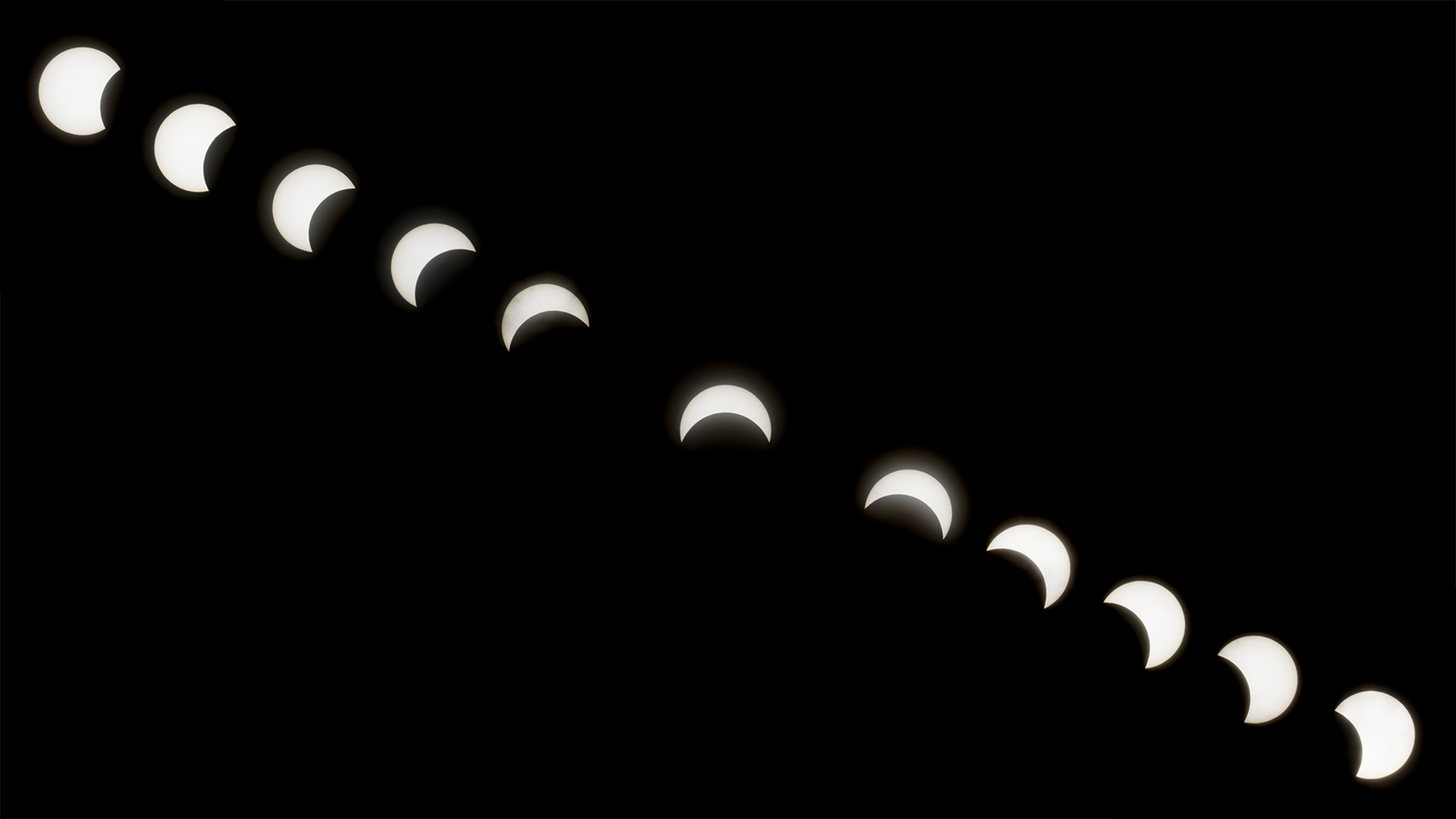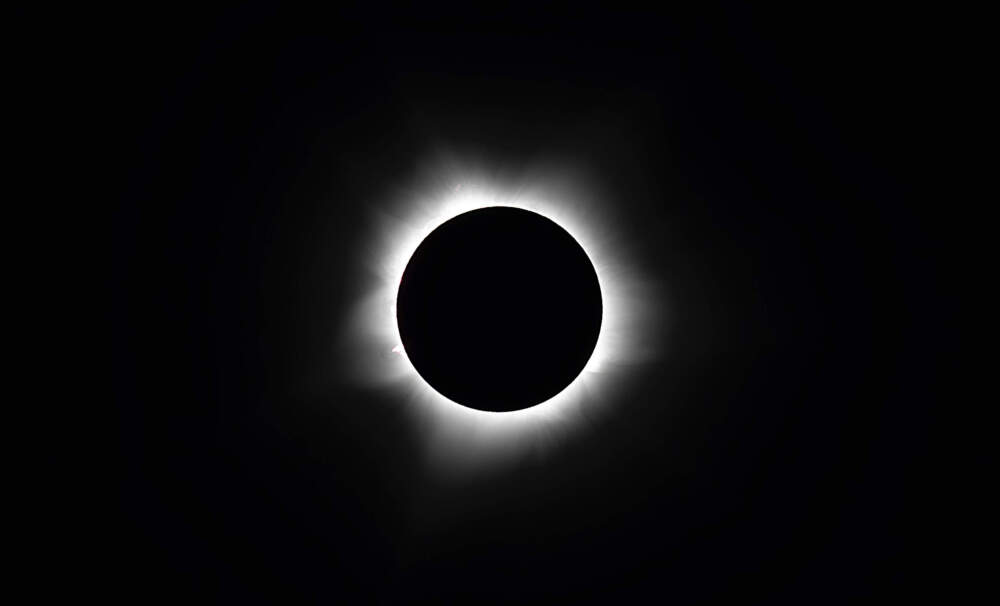Advertisement
One teen's mission to bring images of the eclipse back to Greater Boston

On Monday, tens of thousands are expected to travel across northern New England to see the solar eclipse along its path of totality.
But for the many others outside that zone who will remain far away in classrooms, homes and offices, a teenage eclipse chaser hopes to offer the next best thing: a high-resolution livestream of the event shot from Burlington, Vermont.
Milo Dantowitz was just 2 years old when his father, Ron, took him to see his first total solar eclipse from a boat off the coast of China in 2009. Since then, the father-son pair have chased down two other total solar eclipses: one in 2017, in Oregon, and another on the northwestern edge of Australia last year.
The Brookline residents will not have to travel quite as far on Monday to witness their next total solar eclipse.
This time, Dantowitz has a particular educational mission: he wants to send back ultra-high definition video of the event in all its phases, including rare real-time footage of the sun’s fiery outer ring. He wants to send it to students back at Brookline High School, where he is a junior.

“I’ve heard a couple of people say that their first time seeing an eclipse was almost, like, scary,” Dantowitz, 17, said. “For me, though, it was almost like a new understanding of my scale.”
Over the past few weeks, he has assembled a specialized rig of cameras, filters and a computerized telescope mount. If all goes according to plan, the Dantowitz livestream will start around midday Monday, and run for three to four hours on the website SkyShow.TV.
And as the school day winds down, that stream will be projected on a screen in Brookline High’s cafeteria. Dantowitz's classmates — and many others — will get a chance to share that magic moment with him, even remotely.
"I’ve heard a couple of people say that their first time seeing an eclipse was almost, like, scary. For me, though, it was almost like a new understanding of my scale."
Milo Dantowitz
“For the past couple of weeks, I've been mentioning it to as many people as I can," he said. "I really hope that everyone who wants to — and even people who don't want to — can have the opportunity to see something like this.”
Monday's total solar eclipse will pass over Mexico, the U.S. and Canada. And while residents in Massachusetts, Rhode Island and Connecticut will experience a partial eclipse, only a slice of northern New England — including Vermont, New Hampshire and Maine — falls along the path of totality, from which the sun is completely blocked by the moon. (For more details, see our New Englanders' guide to the eclipse.)
More than most children, Dantowitz was born into eclipse-chasing. His father, Ron, is a former science educator, who ran a school observatory for years.
In 2014, at age 7, Dantowitz became the youngest Massachusetts resident ever to get a ham radio — or amateur radio — license. The family has access to high-quality telescopes and imaging equipment for work and hobbies, and shared footage of last year’s total eclipse from Australia with NASA.
Advertisement

But Dantowitz is also a passionate communicator of the beauty of science, and felt compelled to share the experience this time around with his peers.
At first, he had hoped to arrange a school field trip to the path of totality. But between fundraising, traffic and the unpredictability of the weather, it proved an impossible task, said Ed Wiser, Brookline High’s head of science curriculum.
So Dantowitz and his dad are headed up north as a duo, with plenty of gear in tow. Luckily, Monday's forecast calls for clear skies. The images could be glorious, and Dantowitz knows the equipment well.
But as a high school junior, handling all that technology comes with some stress.
“I can’t deny it’s there," he said. "The hard part about this is that most of the difficult things have to happen day-of or during the eclipse. But it’s easily overshadowed by the thrill of getting to do this, [to] be there again.”
Wiser pointed to Dantowitz as one example that the love of pure science is alive and well.
"And there are a lot of students who are really interested in education for the sake of just learning, as opposed to grinding through and getting grades," said Wiser. "He's a real model."
Though he hopes to eventually study medicine, Dantowitz hopes eclipse trips like this one will always be part of his life.
"I’d almost compare it to, like, storm chasers," he said. "It's definitely a lot safer, but eclipses are so much rarer — it's hunting rare game.”
